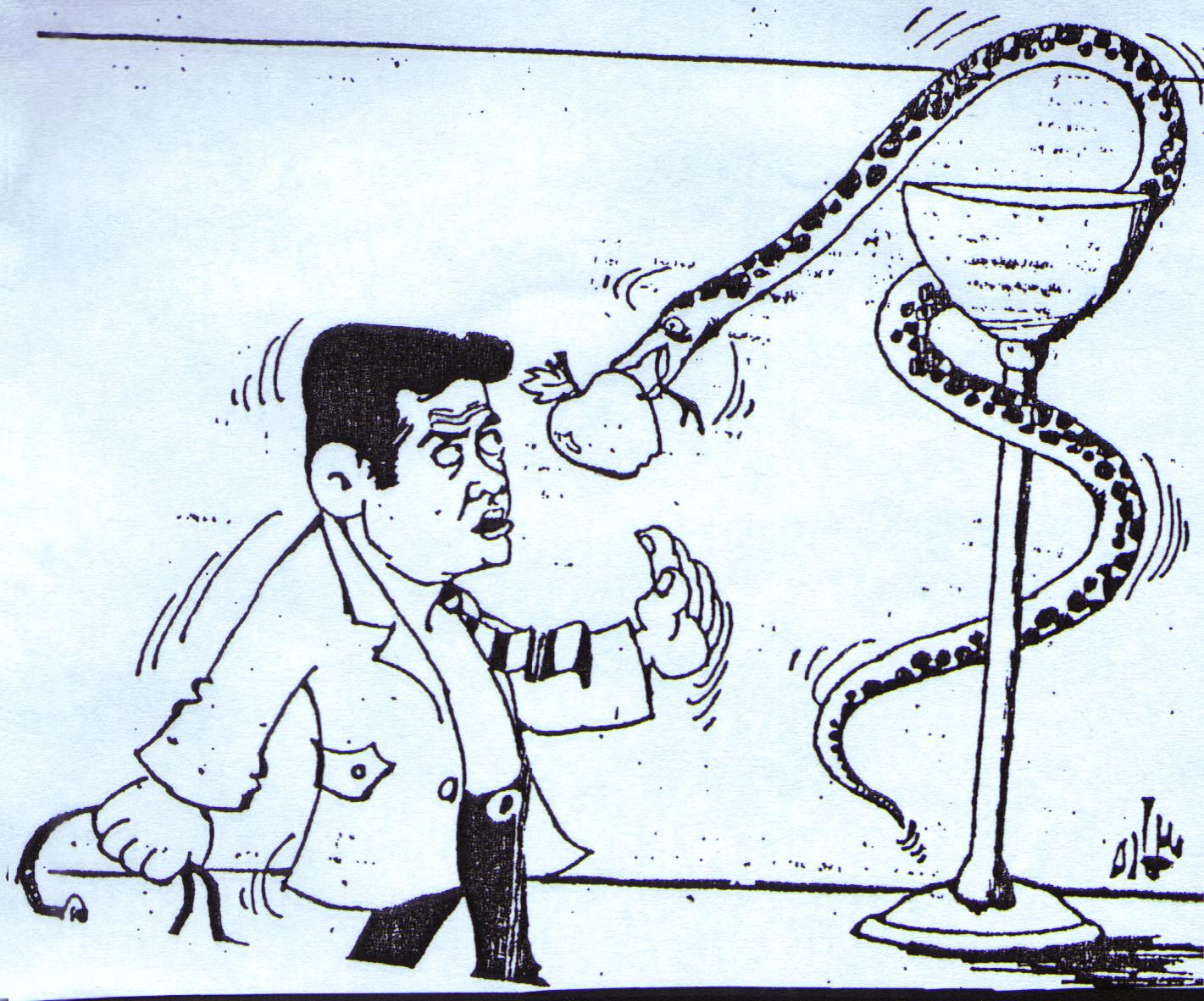|
|
 |
 |
|
Version française
"Emile Bitar was the representative of a generation, a school of thought,
a class which is nobility : the nobility of those who triumphed over the experience of government, the nobility
of those who did not yield to the temptations that power induces, the nobility of those who dared to say no to violence...
This nobility represented by Emile Bitar should have been, and it must be, the road to the future of Lebanon."
Ghassan
Tueni, Former Minister and An-Nahar Publisher
"Emile Bitar, Al Tariq ila
al Mustaqbal", An-Nahar, full text

|
| Professor Emile Bitar (1931-1988) |
| "The noble cast of those who did not yield..." |

|
| A cartoonist's look at Emile Bitar, dubbed "the most incorruptible Lebanese" |
|
 |

In his Pulitzer prize-winning book, Profiles in Courage, John F. Kennedy
argued that in the age-old contest between power and principle, only those willing to lose power for their convictions
are deserving of posterity's approval.
This website chronicles the story of a Lebanese minister who acted on principle
and followed his conscience in pursuit of the national interest, a man who displayed a rare form of courage, sacrificing his
well being and putting his future at risk to protect the public interest and do what he believed was right for his country,
a man who resigned his seat in protest rather than violate his ideals.
Although he occupied centerstage for only a short period of time, Emile Bitar had a major and lasting impact
on the political consciousness of his countrymen, for the key decisions of his political career were based on moral principle.
In a country plagued by corruption and patronage, he displayed character, integrity, and commitment to serving the national
interest above all personal and sectarian considerations. In a country were most politicians look for outside support and
foreign patrons, he remained utterly and quasi-obsessively independent. Thus he personified the new statesman that the
Lebanese were longing for and rarely has a public figure been so much loved, respected and admired by the people.
Wholly oblivious to the squabbling and bickering, the wheelings, dealings and manoeuverings of traditional Lebanese
politicians, Emile Bitar was able to remain above the fray, to levitate above the sectarian factions. Constantly repeating
Abraham Lincoln's quote that "A house divided against itself cannot stand", he never ceased urging the Lebanese not to
be instrumentalized by regional powers and to rely only upon themselves in their struggle for national sovereignty,
independence and nation-building.
We hope that Dr Emile Bitar's story will inspire coming generations to believe
in the nobility of public service and in the utmost necessity of political courage. We hope it will encourage them to
stand fast for the ideals of freedom, justice and democracy in Lebanon.
President of the Emile Bitar Foundation
|
|
 |
 |
 |
|



